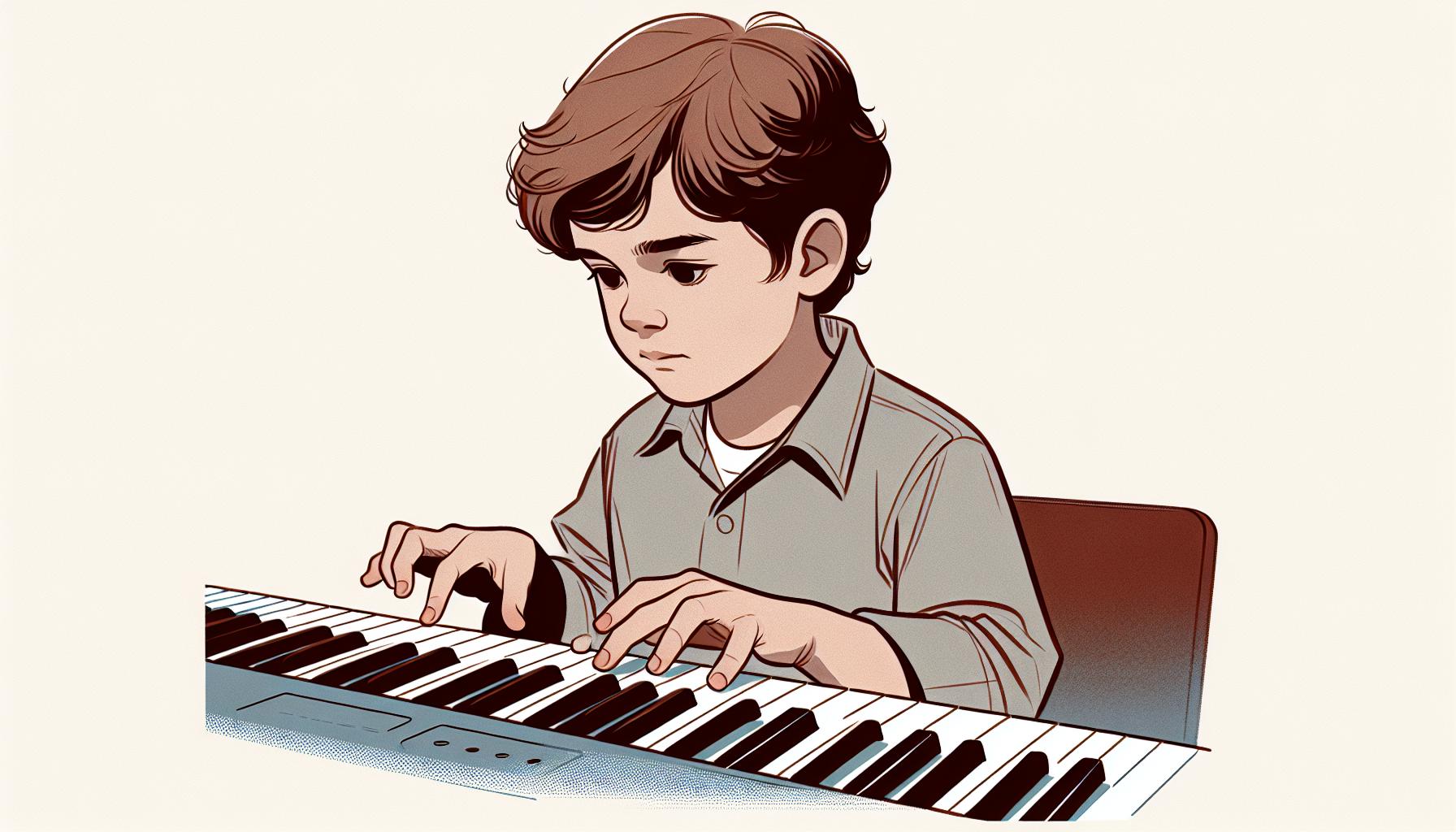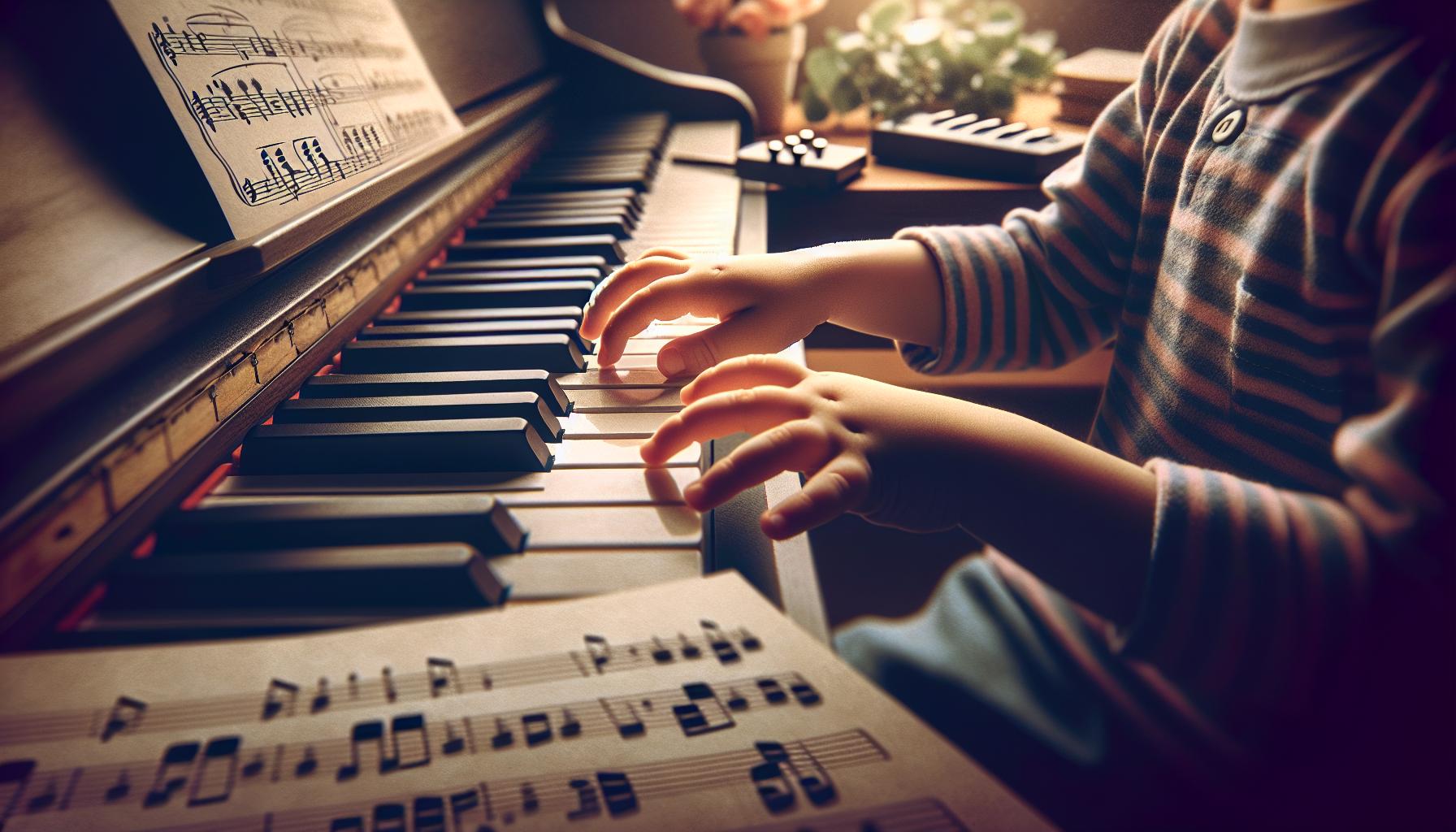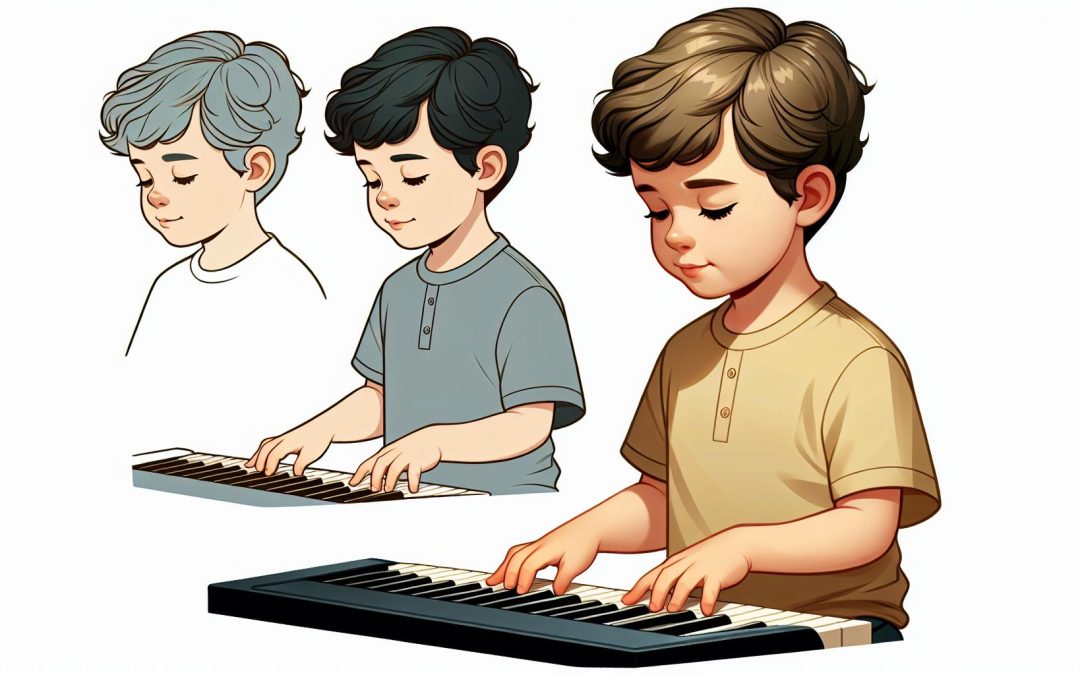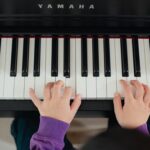Deciding when to start learning the keyboard can be a bit of a puzzle. With opinions as varied as musical genres, parents and aspiring musicians often find themselves wondering if there's a magic number. Is it when they're toddlers, or maybe a bit older?
The truth is, there's no one-size-fits-all answer, but there are sweet spots that can help set the stage for a lifelong love affair with music. It's about balancing readiness and enthusiasm, a harmony between eagerness to learn and the physical ability to manage the instrument. Let's dive into finding that perfect age to embark on a musical journey that resonates through life.
Benefits of Starting Young
When it comes to learning the keyboard, starting young carries a myriad of benefits that can significantly impact a child's development, both musically and personally. Early exposure to music education not only lays the foundation for musical skills but also fosters various cognitive and social improvements.
Children who begin their keyboard lessons early tend to develop sharper auditory skills compared to their peers. Their ability to distinguish between different sounds, pitches, and rhythms is enhanced, making them more adept musicians as they grow. This keen sense of hearing extends beyond music, aiding in better language development and listening skills.
Moreover, early learners often showcase improved memory capabilities. Learning to play the keyboard requires memorizing notes, scales, and oftentimes entire pieces of music. This practice significantly boosts both short-term and long-term memory, benefiting children in academic pursuits as well.
Another compelling advantage is the improvement of fine motor skills and hand-eye coordination. Playing the keyboard involves a delicate balance of hand movements, often requiring both hands to operate independently. Younger children who tackle this challenge enhance their dexterity and coordination far beyond their years.
Early keyboard education also nurtures discipline and patience. Mastering an instrument is a slow process filled with challenges. Children who start early learn the value of consistent practice and perseverance. These life skills are invaluable, applying to numerous situations outside of music.
Socially, young learners gain a sense of belonging and community. Recitals, group practices, and music classes offer opportunities for social interaction and teamwork. Children learn to support their peers, appreciate the effort behind performances, and enjoy a shared interest.
Interestingly, the emotional benefits of starting young cannot be understated. Music is a powerful medium for expression. Children who learn to play the keyboard early often find it easier to express their emotions and relieve stress through their playing. It becomes a healthy outlet for their feelings and a source of joy and satisfaction.
Lastly, fostering a passion for music at a young age can lead to lifelong enjoyment and possibly a career in music. When the foundation is laid early, children have more time to explore different musical genres, dive deep into the complexities of music theory, and perfect their playing style.
Factors to Consider

When deciding the best age for a child to start learning the keyboard, several factors come into play. These factors can significantly influence not only the child's initial experience with the instrument but their long-term musical journey as well. Understanding these considerations helps in making a more informed and beneficial decision for the child's musical education.
Child's Interest
First and foremost, the child's interest in learning the keyboard is crucial. A genuine curiosity and excitement about the instrument can greatly enhance their motivation and engagement during lessons. Observing the child’s reaction to music and their spontaneous interactions with musical instruments can be telling signs of their interest.
Physical Readiness
Physical readiness is another important consideration. Playing the keyboard requires certain fine motor skills and hand-eye coordination, which tend to develop with age. Children should be able to sit comfortably at the keyboard and reach the keys with ease. Typically, these physical abilities begin to mature around the age of 5 to 6 years.
Emotional and Cognitive Development
The child's emotional and cognitive development also plays a significant role. Learning an instrument involves following instructions, concentrating for extended periods, and dealing with the frustrations of challenging tasks. Children who can handle these emotional and cognitive demands are more likely to thrive in their keyboard lessons.
Learning Environment
The learning environment is key to fostering a positive and effective musical education. A supportive environment includes finding a patient and experienced teacher who can adapt lessons to the child's learning pace and style. Additionally, the presence of a musical community or opportunities for group lessons can enhance learning through peer interaction.
Time Commitment
The commitment to regular practice is essential for progress on the keyboard. Before starting lessons, it’s important to consider whether the child has enough time to dedicate to practice amidst their other activities and responsibilities. Consistency and routine in practice are often more beneficial than the total time spent.
Financial Investment
Finally, starting keyboard lessons is a financial investment. Beyond the cost of lessons, there are expenses related to acquiring a keyboard, buying music books, and possibly participating in performances or exams. Ensuring that the budget aligns with these costs from the outset can prevent undue stress later on.
Each child is unique, and these factors will weigh differently for everyone. Taking them into account helps tailor the learning experience to suit the child’s individual needs, potentially paving the way for a fulfilling and enriching musical journey.
Early Start vs. Later Start

When it comes to the journey of learning the keyboard, the debate between an early start versus a later start plays a crucial role in shaping a child's musical proficiency and enjoyment. Parents often ponder whether it's better to introduce their child to the keyboard at a young age or wait until they're older. Each approach has its unique benefits and considerations that can impact a child's music education experience.
Benefits of an Early Start
Introducing children to the keyboard at a young age offers several key advantages:
- Neurological Development: Young children's brains are like sponges, readily absorbing new information. Starting keyboard lessons early can stimulate brain development, enhancing areas responsible for memory, concentration, and fine motor skills.
- Musical Foundation: Early learners have the opportunity to develop a strong musical foundation. They often gain a deeper understanding of rhythm, melody, and harmony, which can be beneficial for future musical endeavors.
- Confidence Building: Mastering the keyboard can be a significant confidence booster for children. Early success in music can foster self-esteem and encourage them to pursue other interests with enthusiasm.
Considerations for a Later Start
Despite the advantages of starting young, beginning keyboard lessons later in childhood or adolescence shouldn't be overlooked:
- Physical Readiness: Older children may have better physical coordination and finger strength, which can facilitate smoother progress on the keyboard.
- Focused Interest: Children who choose to pursue keyboard lessons later are often more driven by genuine interest rather than parental encouragement. This intrinsic motivation can lead to more dedicated practice and enjoyment.
- Emotional Maturity: Older learners might have greater emotional maturity, enabling them to handle the challenges and frustrations that come with learning a new instrument with resilience.
Making the Choice
Ultimately, the decision on when to start keyboard lessons should be a collaborative process between the child, their parents, and potentially a music educator. It's essential to consider the individual child's interest, maturity level, and readiness rather than adhering strictly to age. Some children might be eager and ready to begin their musical journey at a very young age, while others may benefit from waiting until they're older.
Signs of Readiness

Identifying when a child is ready to start learning the keyboard involves observing certain signs of readiness. These signs can vary from one individual to another, but they provide crucial insights into whether the child might benefit from beginning their musical journey.
Firstly, a Strong Interest in music and instruments is a telling sign. Children who frequently express curiosity about music, enjoy listening to various tunes, or often tinker with musical toys and instruments exhibit a natural inclination towards music. This interest is a foundation upon which motivation and dedication can be built, making the learning process more enjoyable and effective.
Secondly, the ability to Focus for an extended period is essential. Learning the keyboard requires patience, practice, and concentration. If a child can stay engaged with a task for longer periods, typically around 15 to 20 minutes for younger children, it indicates a readiness to take on keyboard lessons. Their capacity to focus not only aids in mastering technical skills but also enriches their understanding of musical pieces.
Physical Readiness is another critical aspect. The child needs to have developed fine motor skills to navigate the keys and coordination to manage different movements with both hands. While these skills continue to evolve with age, a basic level of dexterity is necessary for starting keyboard lessons. Physical readiness also includes being able to sit up straight and reach the keyboard comfortably, which is essential for developing proper playing technique.
An often-overlooked factor is Emotional Maturity. Children who show signs of being able to handle gentle criticism and are willing to persevere through challenges show emotional readiness for learning an instrument. Learning to play the keyboard involves trial and error, and being able to manage frustration and continue practicing is crucial for progress.
Lastly, the child’s Response to Structure can indicate readiness. Learning an instrument involves structured practice sessions and following instructions from a teacher. Children who respond well to a routine and understand the concept of practicing to improve skills might find it easier to adapt to the discipline required in keyboard lessons.
Observing a child for signs of a strong interest in music, the ability to focus, physical readiness, emotional maturity, and a positive response to structure can provide valuable insights into their readiness to start learning the keyboard. Each child is unique, and these signs help tailor the learning experience to their individual needs and capabilities.
Conclusion
Deciding the best age for a child to start learning the keyboard isn't about picking a magic number. It's about tuning into their unique cues and readiness. By paying attention to their interest in music, ability to focus, and readiness both physically and emotionally, parents can make an informed decision. Tailoring the learning experience to fit their child's individual needs ensures not just a good start but a joyful journey in music education. Let's nurture their budding musical talents with patience and understanding, setting the stage for a lifelong love of music.
Harlan Kilstein began playing piano during covid with no piano background at all. He taught himself how to play learning what to do and what not to do.
Today he's an advanced intermediate player and can help you grow in your skills because he learned all this on his own.








